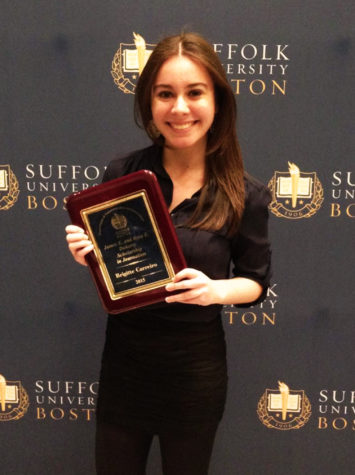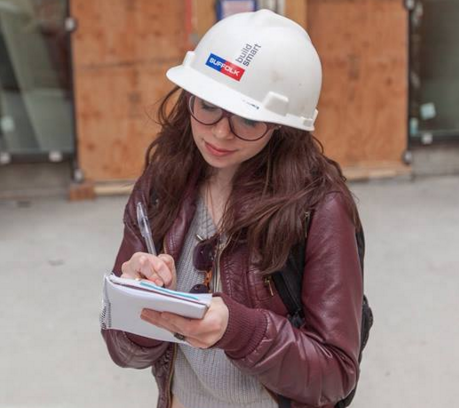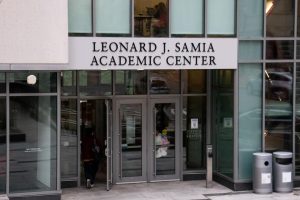What Suffolk is doing to prevent sexual assault
April 30, 2014
As Suffolk University’s participation in Sexual Assault Awareness Month comes to a close, several university departments have spoken out regarding the safety measures currently in place and those to be implemented.
Director of Counseling and Health Services Jean Joyce-Brady has established a programming team consisting of other Suffolk departments including SUPD and Student Affairs that is “actively working” to educate students on prevention and bystander programs that teach safe ways to intervene in the early stages of sexual assault cases.
She describes the university as “strongly committed” to the safety of each student.
Joyce-Brady said the committee is also adamantly working to devise new ways to deal with challenges such as educating the large commuter population at Suffolk as well as incoming students. The Counseling and Health Center is physically present at many awareness events such as the ones put on by Student Affairs for Sexual Assault Awareness Month.
In addition to working with the Counseling and Health Center, SUPD offers services to Suffolk students to ensure their safety. SUPD sponsors the Rape Aggression Defense program, a 12-hour, female-only free course that teaches awareness tips as well as hands-on self-defense techniques.
“We get a lot of students to sign up. Actually getting students to show up is a different story,” said Chief of Suffolk University Police Gerard Coletta. The program is currently available for two weeks in both March and April, consisting of four classes each. Coletta said that scheduling conflicts may interfere with students’ desires to attend the program and is currently looking into possible time changes.
According to a 2012 article in Campus Safety magazine, “84 percent of the women who reported sexually coercive experiences experienced the incident during their first four semesters on campus,” making programs such as this beneficial to college students.
SUPD also offers an escort service that, according to Coletta, allows students to request a uniformed officer to accompany them around Suffolk’s campus and to some surrounding locations, including nearby Massachusetts Bay Transit Association stations and parking garages. When asked why SUPD does not provide escorts to most accessible off-campus locations, Coletta said that doing so could potentially jeopardize an officer’s position.
“Our officers don’t have jurisdiction off-campus,” he said. “If we send an officer down to South Station, that officer is in uniform and he or she is going to be expected to take action in the event that something happens, and they don’t have authority to do that.”
According to Coletta, “The incident of reported sexual assaults here at Suffolk University itself is relatively low.” Although this is true, some cases do occur. Immediately after leaving the Suffolk University residence hall at 10 West St. during October, a female Suffolk student, who requested to stay anonymous, was aggressively approached by a man. She alerted SUPD of the incident. The student described SUPD as “really responsive,” but acknowledged that the incident did negatively affect her feeling of safety in and around Suffolk University.
In an effort to prevent incidents such as this, Coletta mentioned a plan in the works to extend the escort service in the form of a mobile application that students could use to ensure their safety while traveling. Coletta described it as a “virtual escort” that would track a student’s travels and alert the SUPD dispatch center if they did not hear back from the student within an expected travel time. Coletta said that although there is no definite timeline of the release of such a product, SUPD is looking into different applications and software to make it a reality for students.







